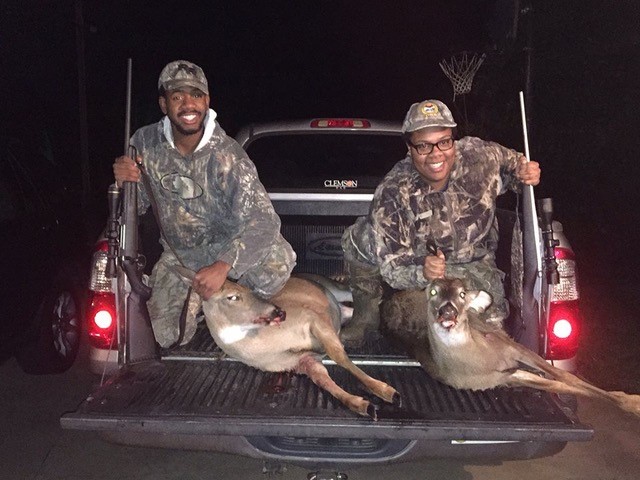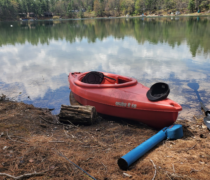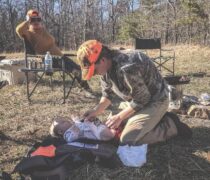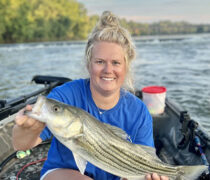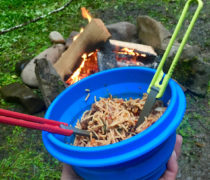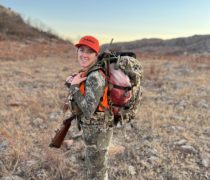Meat on the table
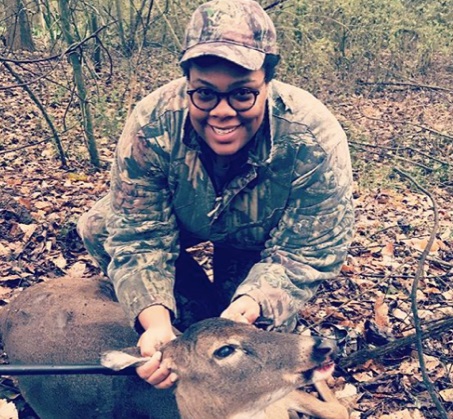
By: Taylor Morton, Artemis Ambassador
My great-great-great grandfather John Bass was the first in my family to own a gun. In fact, the year he was born (1869), the fourteenth amendment was passed. This amendment allowed black people (black men in particular) the right to own firearms. This law is what allowed him to be the first to hunt in our family. Other folks who have historically hunted in my family are mostly men, including my great-great-grandfather John Rafus, my great-grandfather Y.T., and my father Richard. My paternal grandfather used to hunt rabbits, and the family ate them with gravy, mashed potatoes, rice and other foods; possum and raccoons were another good source of meat. Men on my mother’s side of the family also hunted to put meat on the table. For them, hunting was a way to supplement what was being brought in from farming and sharecropping in the fields.
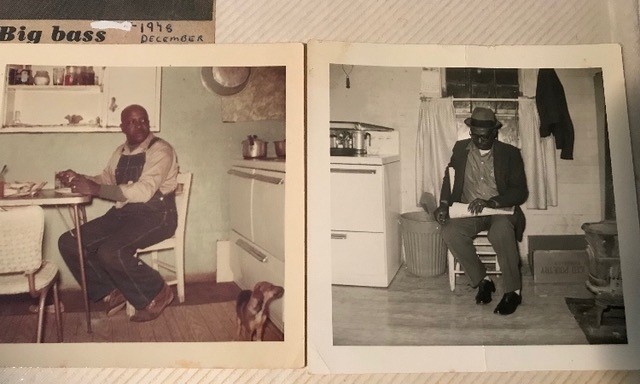
My great grandfather Y.T. really influenced my father’s hunting. Together, he and my father would hunt rabbits and squirrels in Southern Georgia, on peanut farms after the harvest. My father was the first person in his family to venture out into deer hunting at age 13. His first solo hunt was at a black-owned hunting club in while attending Tuskegee University in Alabama. As he puts it, “If it wasn’t for deer and fish, I wouldn’t have had any meat, or even food at times.”
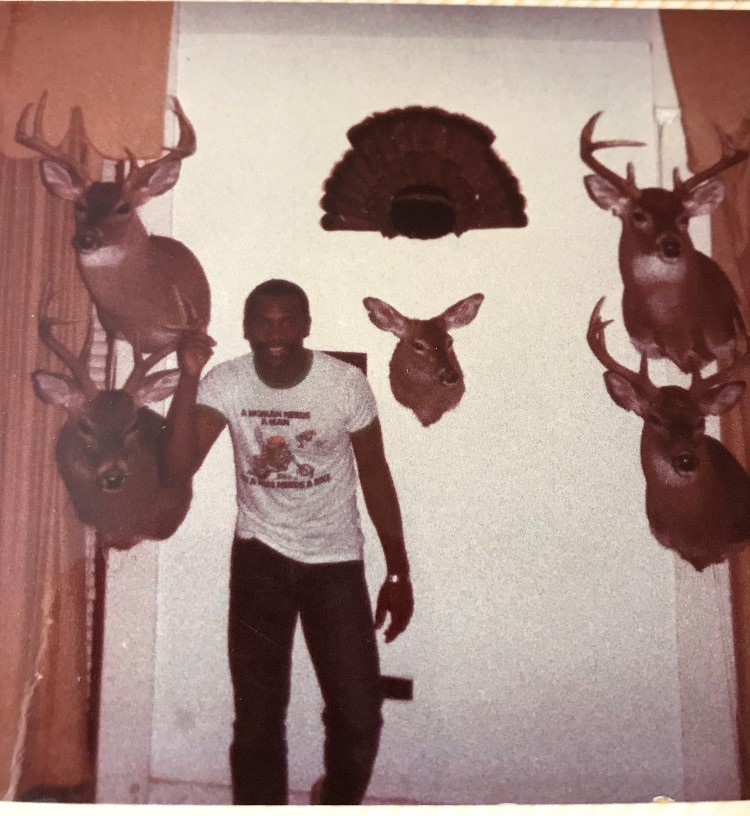
Eventually, he would go on to have a daughter and a son who would take up this tradition to help put food on the table (at this point, meat in the freezer). Sometimes, he would allow us to sit in the blind and wait with him. While learning the ins and outs of hunting skills and culture, we also learned some big lessons about hunting while black. My brother and I were already accustomed to the life lessons of living while black in America (where not to go, what to be wary of, what does the confederate flag mean?), but hunting while black added another layer of complexity. Understanding that blackness is already seen as a threat, weilding a gun (even for sustenance and food) amplifies the dangers of being targeted. I imagine that there had to be some level of caution for stumbling on someone else’s land, or meeting a stranger who bore ill will towards people of color (after all, the Ku Klux Klan was founded in 1865, right around the time the 14th amendment was enacted).
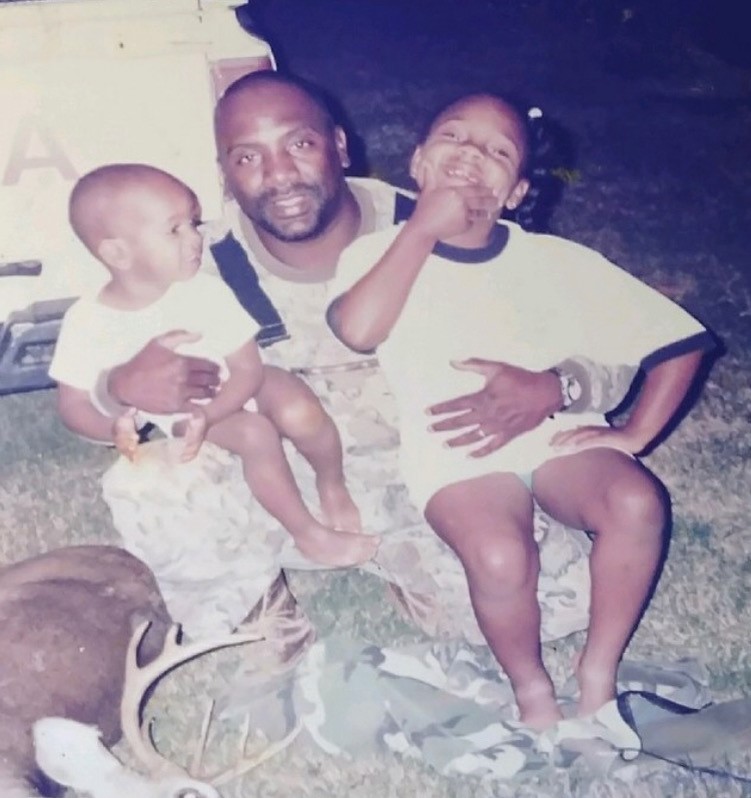
During times when we weren’t hunting, my father would tell us stories of our ancestors. The voices in these stories came from people that I barely or never knew, people who worked hard, and sacrificed their all for the next generations. Their voices speak to the idea that you did not get to where you are alone, you actually stand on the shoulders of many others. I don’t know if John Bass could have even imagined it, but I am grateful that I became the first woman to hunt in our 135 year history of hunting.
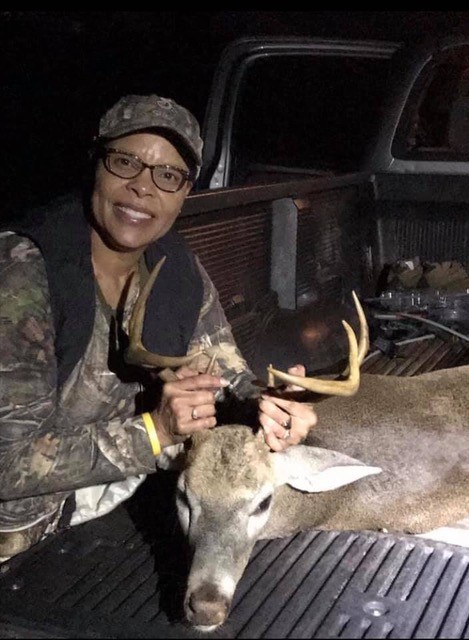
My mother became the first woman on either side of our family to fish. While this hasn’t been a norm for women in our family in the past, we have broken a barrier that we hope to pass onto future generations. My brother, who is an avid hunter owns his own GSP dog training company, has picked up the tradition of hunting with dogs more than 30 years after my great grandfather passed away.
One of my larger hopes in life is that people of color have better access to outdoor activities, but that work begins with access to resources, land ownership and education. In my first year of college at an HBCU, I began to learn about environmental injustices that act as a barrier to clean air, clean water, and other rights for people of color and low income communities. This has become a key part of my work and who I am, as I can’t imagine that anyone would be stripped of their right to engage with the outdoors based on race, class, gender, sexual orientation, language, immigration status, or any other part of their background.
Despite these barriers, participating in hunting, fishing and other outdoor activities in our family has thrived and my father, brother, mother and I are active outdoors people. For us, the tales of strength, determination, patience, and love for one another are all rooted in the tradition of hunting, fishing and outdoor activities. As I move through life, I’m bringing all of the pieces of myself and my identity, including my ancestors, because they remind me that I’m doing what I do not just for selfish purposes; that I’m also doing it for everyone who couldn’t make it this far.
